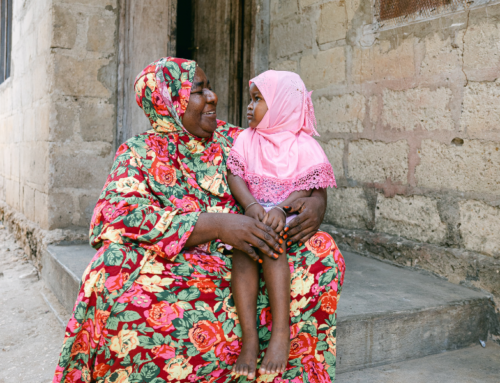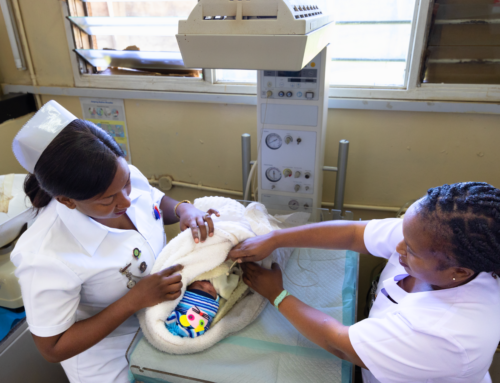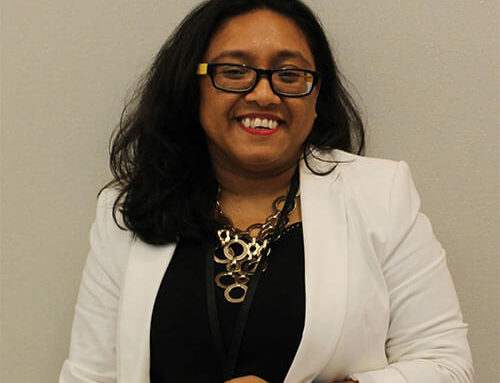
It turns out that the right thing to do is a community-friendly action, a life-saving decision, and also the most loving choice. The right thing is to provide access to health services for mothers and children by collaborating with Community Health Workers.
Community health workers – these are the wonderful individuals without whom the world couldn’t turn, or at least, this holds true in Zambia.
Meet Josephine, for example. She has been the backbone of her local area in Chifubu, in the Zambian city of Ndola, offering crucial community health support.
“The love I have for my community is what’s in my heart. I don’t want my people, especially the women and children, to suffer,” she says.
Josephine Katwamba possesses an openly loving heart, evident in her eyes as she speaks. “Knowledge is a powerful thing,” she emphasizes. Indeed, delivering health information to mothers is vital for quality health provision. She cradles a six-month-old baby Banda at their home, whom she has visited with her mother, Hope Tabitha, to assess their health. Many young mothers often feel isolated during pregnancy, and community health workers like Josephine offer psychosocial support, guiding them through the expectations and considerations of the pregnancy journey.
When we encounter her at the local health centre, Josephine is addressing a group of pregnant and breastfeeding mothers about reproductive health. “My favourite part of my job is ensuring that a mother doesn’t succumb to pregnancy,” she confides. During the health centre session, Josephine broaches what might otherwise be a sensitive topic in her culture. However, her friendly approach, accompanied by laughter and assertiveness, effectively conveys the message to these women.
She’s acutely aware that she serves as the crucial link between mothers and the formal health system, a role she takes seriously. “I don’t want pregnant women and mothers to endure unnecessary hardship because I am their eyes; simultaneously, I am the eyes of the clinic,” she affirms.
Josephine resides in a low-income settlement just outside the city. In this area, old stone houses nestle closely, sharing thin walls that form a row of storybook-perfect rustic rooftops. Most residents are engaged in informal jobs and struggle to make ends meet, let alone afford health services. However, a sense of community spirit permeates the area. Here, neighbours engage in conversations across wooden fences, sharing evening banter, while kids peer through the fences, some even crawling through, engaging in games beneath the rustling trees.

Vulnerable Communities
The community Josephine comes from has high levels of poverty and recurrent cases of communicable diseases, which have deeply affected vulnerable groups – mothers and their children under the age of five. Stigma and lack of information are factors that impede mothers’ access to health services in the area. Mothers often delay seeking their first appointment after conception and opt to visit the clinic only a few weeks before the delivery date. This pattern frequently leads to emergency situations, catching both the mothers and their families off guard.
Josephine recalls an incident from three years ago when she received a call one night about a pregnant mother in distress. “I felt ashamed as a woman when I arrived,” she recounts. A mother had given birth in an outdoor pit latrine, with no assistance available. “The baby was lying on the floor of the toilet,” she reminisces, a visible hint of discomfort crossing her face. “I felt terrible because there were many people around,” she narrates.
Armed with the skills she had acquired through training and a flashlight, she assisted the mother during what she describes as moments of shame, despair, and vulnerability. “I held the baby and placed it on the mother’s abdomen, just as I had been taught,” she rallied the community to arrange for a car that rushed the mother and her newborn to the hospital. For her, it remains a miracle that both the mother and the baby received medical attention at the hospital and survived. “The baby is now three years old,” she beams.

Role of Closing The Gap
Josephine’s role holds immense significance as she aids her community in addressing unmet health needs in a culturally appropriate manner, thereby enhancing access to health services. She serves as the frontline worker who listens, observes, and advocates for the needs of individuals and the community. Her efforts contribute to mitigating health disparities by supporting and encouraging stigmatized mothers to feel comfortable accessing maternal health services. “I’m bridging the gap between the community and the clinic,” she asserts.
Josephine is one of the 1300 community health workers trained in Respectful Maternal Care as part of the “Closing The Gap” project. During the training, she acquired knowledge about delivering health education and motivating behavioral changes, including methods to assist mothers in adhering to health recommendations. This proves especially valuable for pregnant mothers who might occasionally postpone critical decisions that could impact their health and that of their unborn child.
Additionally, she received mentoring and support to provide essential services such as screening and recognizing early signs of danger. “I have a blood pressure machine that I use in the community,” she mentions. With this tool, silent threats like high blood pressure can be identified and promptly referred for medical attention. High blood pressure, for instance, ranks among the primary causes of emergency situations like preeclampsia or excessive bleeding during childbirth.
In her trauma-affected, low-income community, her absence could mean the difference between life and death. When the community seeks love, reassurance, care, and access to health services, they know they can rely on her.
However, she emphasizes the pressing need for more community health workers. “The population has grown, and it’s crucial that we have more community health workers like me.”
(Photo credit: Amref Health Africa / David Brazier)
Story credit: Amref Health Africa / Amref Health Africa in Zambia




